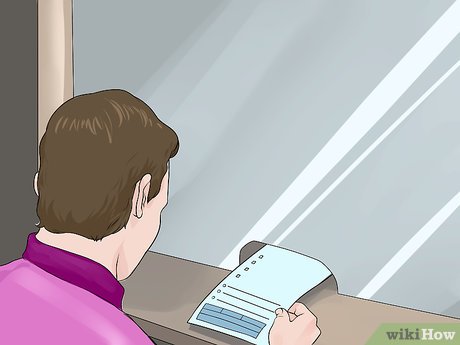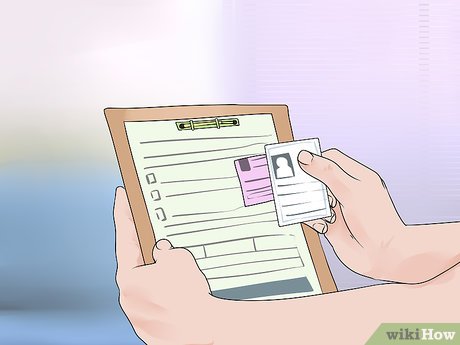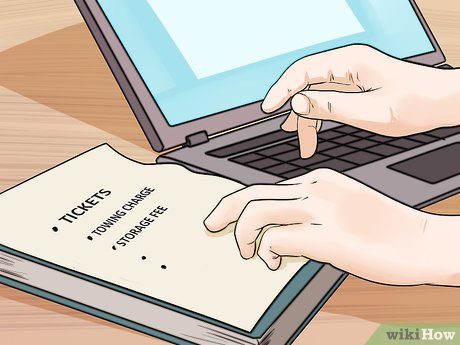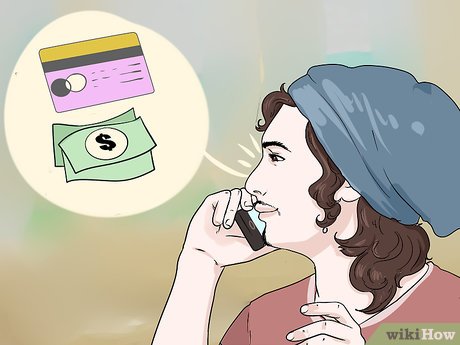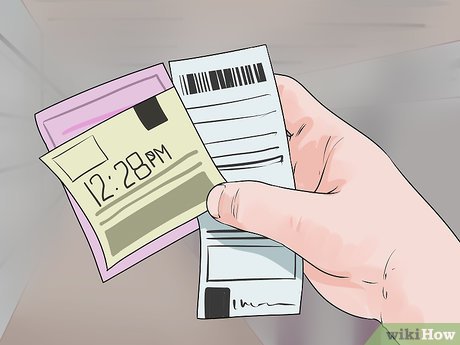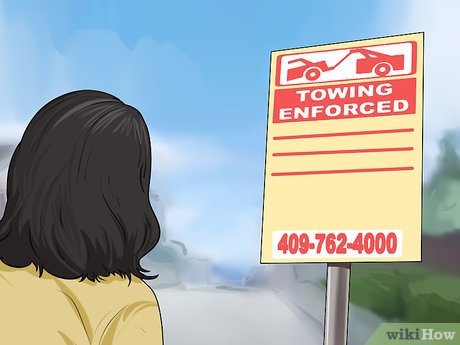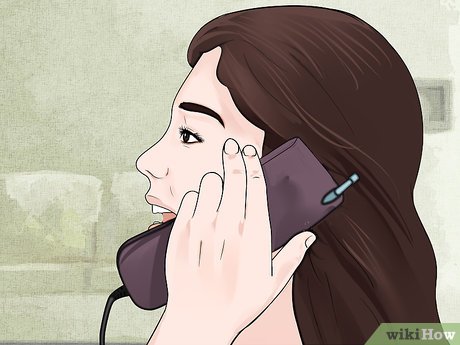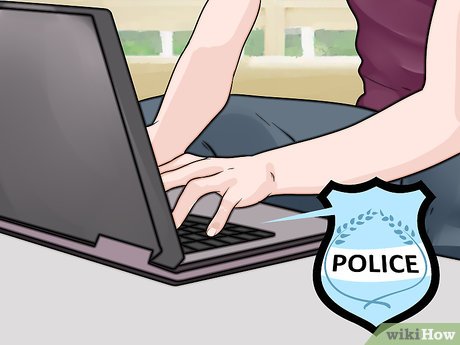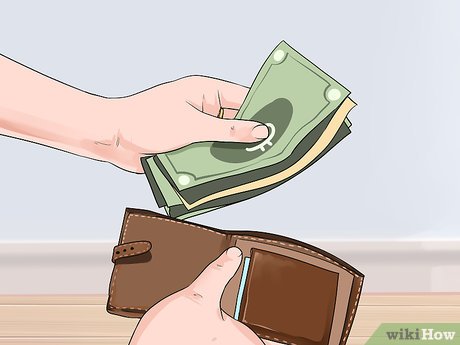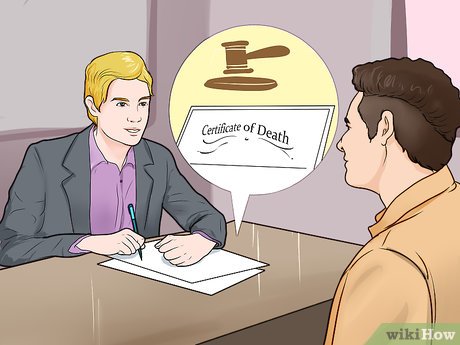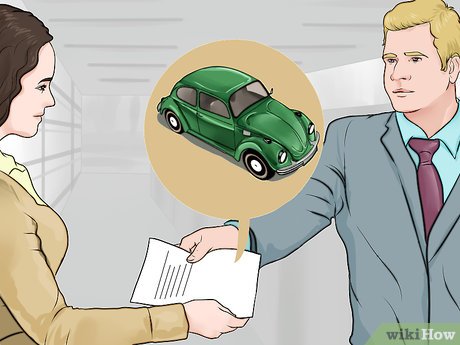How to Retrieve an Impounded Car
Part 1 of 3:
Collecting Your Impounded Car
-
 Figure out why it was impounded. Before you can get your car back, you need to know why it was impounded. In some cases, if someone else was driving your car at the time, you may not be aware of the reason at first, but you (as the owner) are probably still responsible. There are a number of typical reasons that a car could be impounded:[1]
Figure out why it was impounded. Before you can get your car back, you need to know why it was impounded. In some cases, if someone else was driving your car at the time, you may not be aware of the reason at first, but you (as the owner) are probably still responsible. There are a number of typical reasons that a car could be impounded:[1]- involvement in illegal activity
- outstanding tickets or parking fines
- lack of insurance
- improper or expired registration.
-
 Call a lawyer if your car was impounded for illegal activity. A car can be impounded if it was being used for one or more illegal activities, such as driving while intoxicated, carrying drugs or firearms, fleeing from police, or some other illegal activity. For some of these reasons, you may not be able to retrieve the car, especially if the police need to hold it for evidence.[2] Even if you were not driving the car when it was impounded for one of these reasons, you probably need a lawyer to help get it back. You may just need to pay a fine, or you might have to appear in court.
Call a lawyer if your car was impounded for illegal activity. A car can be impounded if it was being used for one or more illegal activities, such as driving while intoxicated, carrying drugs or firearms, fleeing from police, or some other illegal activity. For some of these reasons, you may not be able to retrieve the car, especially if the police need to hold it for evidence.[2] Even if you were not driving the car when it was impounded for one of these reasons, you probably need a lawyer to help get it back. You may just need to pay a fine, or you might have to appear in court. -
 Pay outstanding tickets or parking fines. Different jurisdictions will have different limits about how many tickets they will tolerate before they tow away a car and impound it. You will need to contact the police department and find out exactly what you owe in order to recover the car.[3] Make sure you find out:
Pay outstanding tickets or parking fines. Different jurisdictions will have different limits about how many tickets they will tolerate before they tow away a car and impound it. You will need to contact the police department and find out exactly what you owe in order to recover the car.[3] Make sure you find out:- how much you owe
- what additional costs there may be (such as late fees)
- if there is a towing fee
- if there is a storage fee at the impound lot
- what form of payment they will accept.
-
 Get your car insured or registered properly. In some cases, the police may notice that your car is improperly registered, or that their records show that it is not insured. In order to recover the car in this instance, you would have to take care of the insurance and/or registration, and take proof of the correction to the police station to recover the car.[4][5]
Get your car insured or registered properly. In some cases, the police may notice that your car is improperly registered, or that their records show that it is not insured. In order to recover the car in this instance, you would have to take care of the insurance and/or registration, and take proof of the correction to the police station to recover the car.[4][5] -
 Figure out what additional information you need to bring. Depending on the reason for the impound, bringing a payment may not be enough. You will probably need to bring proof of ownership, proof of your identification, proof of registration and insurance.[6] After you have corrected the problem that led to having your car impounded, collect these documents and take them to the police to show that the problem has been resolved.
Figure out what additional information you need to bring. Depending on the reason for the impound, bringing a payment may not be enough. You will probably need to bring proof of ownership, proof of your identification, proof of registration and insurance.[6] After you have corrected the problem that led to having your car impounded, collect these documents and take them to the police to show that the problem has been resolved. -
 Figure out the total due. Once you know why the car has been impounded, you need to learn how much it will cost for you to recover the car. Usually, you will have to pay several costs in order to get your car back.[7] You can usually figure this out by speaking to someone at the police station. Alternatively, the police may refer you to the city clerk's office instead. Ask them if you have to pay any of the following charges:
Figure out the total due. Once you know why the car has been impounded, you need to learn how much it will cost for you to recover the car. Usually, you will have to pay several costs in order to get your car back.[7] You can usually figure this out by speaking to someone at the police station. Alternatively, the police may refer you to the city clerk's office instead. Ask them if you have to pay any of the following charges:- the initial problem (tickets, insurance, fine, etc.)
- a towing charge
- a storage fee at the impound lot (this number will probably increase each day that the car is held in custody)[8]
-
 Check on the accepted form of payment. You don't want to show up to collect your car and then find out that they won't accept your personal check. Call ahead to verify the form of payment that will be acceptable.[9]
Check on the accepted form of payment. You don't want to show up to collect your car and then find out that they won't accept your personal check. Call ahead to verify the form of payment that will be acceptable.[9]- Cash
- Credit
- Money order
-
 Go to impound lot or police station. In some cases, you may need to report to the police station first, in order to clear up the reason that your car was impounded, and then report to a different lot to collect the car. Be sure that you get a report or a release from the police station, so that the impound lot will know that they can release the car to you.
Go to impound lot or police station. In some cases, you may need to report to the police station first, in order to clear up the reason that your car was impounded, and then report to a different lot to collect the car. Be sure that you get a report or a release from the police station, so that the impound lot will know that they can release the car to you. -
 Get receipts. Be sure that you get receipts for whatever you pay and some form of release from the police to show that you have satisfied any outstanding tickets, warrants, insurance or registration issues, etc.
Get receipts. Be sure that you get receipts for whatever you pay and some form of release from the police to show that you have satisfied any outstanding tickets, warrants, insurance or registration issues, etc.
Part 2 of 3:
Figuring Out if a Missing Car was Impounded
-
 Check where you parked it. Sometimes, you will be aware that your car was impounded - especially if it happened while you were driving it. But sometimes you just walk out where you left it and it's gone. Probably the most common reason for a car to be impounded is that it was simply parked illegally. If you walk out to where you thought your car was, and find that it is missing, check the parking signs in the area. If you were in a 'No Parking' or a 'Tow Away' zone, that's probably your answer.
Check where you parked it. Sometimes, you will be aware that your car was impounded - especially if it happened while you were driving it. But sometimes you just walk out where you left it and it's gone. Probably the most common reason for a car to be impounded is that it was simply parked illegally. If you walk out to where you thought your car was, and find that it is missing, check the parking signs in the area. If you were in a 'No Parking' or a 'Tow Away' zone, that's probably your answer. -
 Look for signs for towing. If your car was in an area that is marked as a tow zone, there will often be a sign in the vicinity that will identify the towing company. Look for that sign and take down the number. Give them a call to find out if they have your car.
Look for signs for towing. If your car was in an area that is marked as a tow zone, there will often be a sign in the vicinity that will identify the towing company. Look for that sign and take down the number. Give them a call to find out if they have your car. -
 Contact police. If you cannot figure out why the car may be missing for one of the first two reasons, call the local police department. You can call the main intake number for the police department, and then explain the reason for your call. Alternatively, you may look online to see if the police department has a special number for impound information.[10] Some police departments may have an online resource that allows you to search for your car using either your license plate number or VIN.[11]
Contact police. If you cannot figure out why the car may be missing for one of the first two reasons, call the local police department. You can call the main intake number for the police department, and then explain the reason for your call. Alternatively, you may look online to see if the police department has a special number for impound information.[10] Some police departments may have an online resource that allows you to search for your car using either your license plate number or VIN.[11]- In some cases, it may take a few days for information of the car to be entered into the police department's computer system, so you may need to check back a few times. For example, the Arizona law on impounding vehicles requires the police officer to make a formal record of impounding the car within three business days.[12]
Part 3 of 3:
Retrieving an Impounded Car for Someone Else
-
 Be prepared to pay the costs. If needed, someone other than the owner of the car may be able to retrieve the car from the impound lot. However, the person retrieving the car must take care of paying all the expenses that the owner would have had to pay. This includes all the fines, tickets, storage fees, towing, or whatever other charges there may be. In addition, you must be prepared to prove that you are authorized to take the car.
Be prepared to pay the costs. If needed, someone other than the owner of the car may be able to retrieve the car from the impound lot. However, the person retrieving the car must take care of paying all the expenses that the owner would have had to pay. This includes all the fines, tickets, storage fees, towing, or whatever other charges there may be. In addition, you must be prepared to prove that you are authorized to take the car. -
 Retrieve a car as a lien holder or lender. If you hold a lien on a car that has been impounded, and you are listed on the title as a lien holder, then in some jurisdictions you may be entitled to retrieve the car from the impound lot. You will need to be prepared to pay the same fees that the owner would be responsible for (fine, tickets, storage, towing, etc.). In addition, you must provide a copy of the title that shows that you hold a lien that has not yet been satisfied.[13]
Retrieve a car as a lien holder or lender. If you hold a lien on a car that has been impounded, and you are listed on the title as a lien holder, then in some jurisdictions you may be entitled to retrieve the car from the impound lot. You will need to be prepared to pay the same fees that the owner would be responsible for (fine, tickets, storage, towing, etc.). In addition, you must provide a copy of the title that shows that you hold a lien that has not yet been satisfied.[13] -
 Retrieve a car as an "agent" for the owner. In some states, the owner may designate another person as "agent" to collect an impounded car. Some examples may be if the owner is incarcerated, is injured, is out of state at the time that the car was impounded, etc. In such cases, the owner will need to provide a letter of authorization to the agent, which should include the following information:
Retrieve a car as an "agent" for the owner. In some states, the owner may designate another person as "agent" to collect an impounded car. Some examples may be if the owner is incarcerated, is injured, is out of state at the time that the car was impounded, etc. In such cases, the owner will need to provide a letter of authorization to the agent, which should include the following information:- Owner's name, as it appears on the title or registration
- Identification of the vehicle, including make, model, year, VIN, license number
- Name of the agent. The person designated as agent will have to show identification when collecting the car. The agent does not necessarily have to be a relative of the owner.
- The agent must be able to demonstrate that he has a valid driver's license and insurance to drive the car away from the impound lot.
- In some states, the letter authorizing the agent to collect the car must be notarized. To find out the requirements of your specific jurisdiction, call the police department to ask their requirements.
-
 Retrieve a car if the owner is deceased. In some jurisdictions, if the owner is deceased, then a relative may collect the car with a copy of the death certificate and proof of relationship.[14] Alternatively, in some places, the executor of the will may be able to retrieve the car.
Retrieve a car if the owner is deceased. In some jurisdictions, if the owner is deceased, then a relative may collect the car with a copy of the death certificate and proof of relationship.[14] Alternatively, in some places, the executor of the will may be able to retrieve the car. -
 Retrieve a car for a leasing agency or dealership. If the car has been leased or is owned by a dealership, a representative of the agency may be able to recover it by showing proof of ownership for the company.[15]
Retrieve a car for a leasing agency or dealership. If the car has been leased or is owned by a dealership, a representative of the agency may be able to recover it by showing proof of ownership for the company.[15]
Share by
Jessica Tanner
Update 24 March 2020



